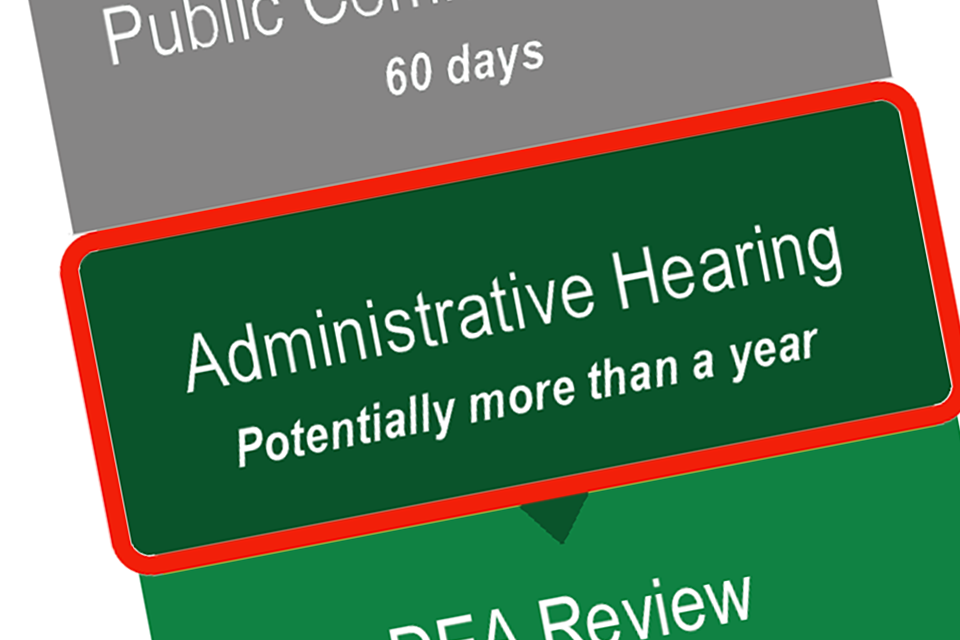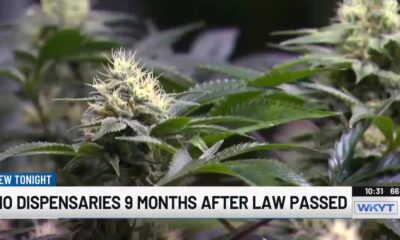The cannabis rescheduling saga hit a new snag, with a chance the policy change could be nixed altogether.
A Drug Enforcement Administration judge on Monday canceled marijuana rescheduling hearings set to begin next week and put the process on hold for at least three months, giving pro-rescheduling groups time to challenge earlier rulings directly with the DEA’s administrator.
Chief Administrative Law Judge John J. Mulrooney II issued a strongly worded order that will let cannabis industry groups appeal his ruling that kept DEA in charge of the proceedings, though he rejected their request to remove the agency entirely.
“The specter of officials at the highest level of Agency management selectively assisting and granting access to individuals and groups standing in opposition to the [Notice of Proposed Rulemaking] it purportedly supports as the proponent, carries no small measure of discomfiture,” Mulrooney wrote in his 6-page decision.
While Mulrooney said he couldn’t remove DEA from its role, he warned he could take other serious steps, including stopping the entire process and recommending it start over from scratch with new rules.
“Even factoring in the reality that sometimes litigants and their representatives should be mindful of what they wish for, to the extent my analysis is found to be in error on review, I am willing to certify that the allowance of this interlocutory appeal could potentially avoid exceptional delay, expense or prejudice,” Mulrooney wrote.
The judge described DEA’s actions as showing “a puzzling and grotesque lack of understanding and poor judgment” for a major federal agency, but said such issues wouldn’t ultimately compromise the final decision.
A cohort of cannabis companies and advocates, including Village Farms International and Hemp for Victory, tried to disqualify the DEA from participating in rescheduling hearings by pointing to several examples of alleged bias. They said DEA Deputy Assistant Administrator Matthew Strait gave special help to the Tennessee Bureau of Investigation with its application to participate – help that wasn’t offered to others, including Colorado state officials.
Questions also arose about how the DEA picked who could participate in the hearings, with documents showing the agency received 123 requests from 163 organizations but only selected 25 participants. The companies uncovered that the DEA had an undisclosed partnership with one of the chosen hearing participants, the Community Anti-Drug Coalitions of America, on fentanyl-related programs.
The cannabis companies first raised concerns in November when Kevin Sabet, CEO of anti-legalization group Smart Approaches to Marijuana, claimed he had “two confidential sources inside the DEA” who knew about the agency’s opposition to rescheduling. A federal judge recently dismissed a separate lawsuit seeking to force the DEA to reveal these alleged communications.
But the DEA defended itself Monday, saying that “marijuana is presently a Schedule I controlled substance and DEA continues to treat it as such.”
The agency argued that its job to enforce drug laws doesn’t prevent it from fairly considering changes to marijuana’s status.
The judge noted a paradox in the DEA’s approach. Had the agency “elected at the outset to narrow the scope of participants within the strict parameters of the regulations… without any of the unpalatable noise associated with the alleged ex parte communications,” its decisions would likely have been upheld, according to the order.
Mulrooney also criticized the DEA’s failure to acknowledge “in any way the gravity” of high-level officials allegedly helping potential participants strengthen their applications.
The appeal itself adds complexity to the timeline. Under DEA regulations, the process now returns to agency leadership, who will control all aspects including briefing schedules and potential oral arguments.
Additionally, President-elect Donald Trump will take office next week, which Mulrooney noted in his order, means that “the appointment of a new DEA Administrator by a different political party is imminent.”
In a separate rebuke, Mulrooney on Monday also blasted the DEA for ignoring his instructions about evidence submission when the agency tried to submit thousands of public comments digitally against his orders, calling the move “unprecedented and astonishing,” according to Marijuana Moment.
Both sides must now update the court every 90 days on the appeal’s status. The cannabis companies have 15 days to file their appeal.
2283000-2283354-marijuana rescheduling_order regarding village farms interna, hemp for victory and oco et al’s motio
2283000-2283354-government opposition to vfi et al request for reconsideration

 California Cannabis Updates1 year ago
California Cannabis Updates1 year ago
 Breaking News1 year ago
Breaking News1 year ago
 best list1 year ago
best list1 year ago
 Business12 months ago
Business12 months ago
 cbd1 year ago
cbd1 year ago
 Bay Smokes1 year ago
Bay Smokes1 year ago
 cannabis brands12 months ago
cannabis brands12 months ago
 autoflower seeds12 months ago
autoflower seeds12 months ago

















































